7. The Wanderers (Philip Kaufman, 1979)
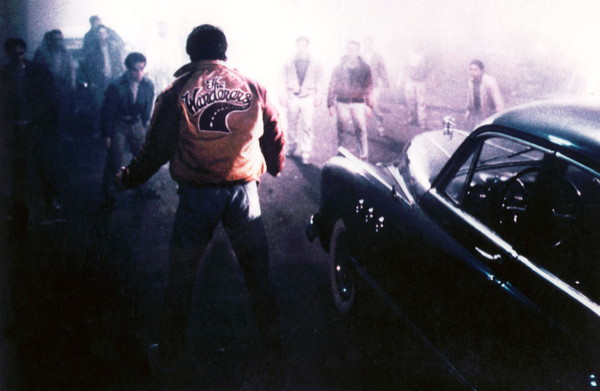
The 50’s were a rich time for storytelling and Hollywood certainly has mined it for material. Based on a Richard Price novel of the same name, The Wanderers treads familiar ground with its story of rival gangs in the early 60’s in the Bronx, but it really is more of an end of an era story as the characters grow older and seek out the real world, shrugging off their colors and finally embracing the challenges of life outside the familiar world.
Ritchie Gennar (Ken Wahl) is the leader of The Wanderers, a local gang that is more social club than outlaw group. Like most teens at this time they are concerned with the important things in life: chasing girls, rock and roll on the radio, drinking and having a good time, but as in other dramas, reality tends to intrude, and this film is really about the end of the age of innocence: the 50’s.
Filmed on location in The Bronx, the cast was mostly unknowns and the budget was low, but Kaufman managed to stay true to the spirit of the novel and happened to capture a moment in time. Peer pressure, teen pregnancy, parental abuse, and the constant threat of violence, be it from family members or other gangs, all color this film with a tint of realism. Gentleman, the 50’s are over, and as Dylan sang, “The Times They Are a-Changin”; what are you going to do when childhood is over?
8. Outsiders & Rumble Fish (Francis Ford Coppola, 1983)
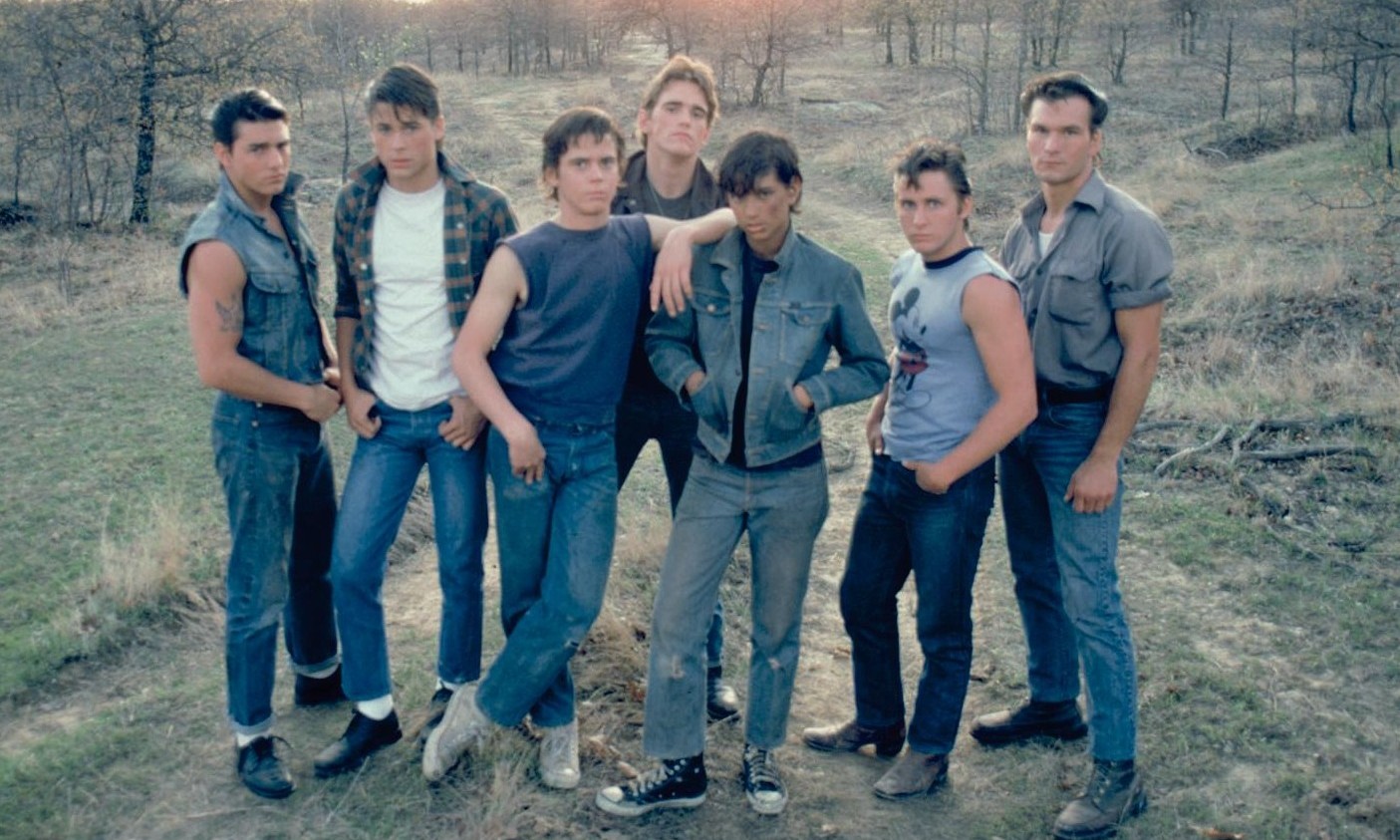
“They grew up on the outside of society. They weren’t looking for a fight. They were looking to belong.” Tagline for The Outsiders. In 1983 Francis Ford Coppola was looking for a project and he was contacted by Jo Ellen Misakian, a librarian at Lone Star Elementary School in Fresno, California; Misakian and her students encouraged Coppola that he should make a film from S.E. Hinton’s novel, The Outsiders. And Coppola responded positively by making not only one film, but two, by filming, Rumble Fish as well.
Well known due to its impressive cast of young up and comers, Coppola made effective use of a troop of now familiar faces, including C. Thomas Howell as Ponyboy Curtis, Rob Lowe as Sodapop Curtis, Emilio Estevez as Keith Matthews, Matt Dillion as Dallas Winston, Tom Cruise as Steve Randle, Patrick Swayze as Darrel Curtis, and Ralph Macchio as Johnny Cade.
“Rusty James can’t live up to his brother’s reputation. His brother can’t live it down.” Tagline from Rumble Fish. Also filmed in 1983, Coppola wrote the screenplay between takes of The Outsiders, utilizing much of the same cast and crew.
This film though is completely different, featuring a noir like use of moody black and white film stock to express Motorcycle Boy’s colorblindness and his alienation. Featuring Matt Dillion as Rusty James and Mickey Rourke as The Motorcycle Boy, Coppola again sticks close to the novel for his story, showing how one boy’s legendary status has effectively overshadowed his brother’s own personality, thus leading him to a life of petty crime.
The use of the black and white film stock is to symbolize Motorcycle Boy’s relationship to the other characters and the world at large; at times the sound fades in out, the scene of the tropical fish in the aquariums is filmed in color to reflect how Rourke sees himself, from the outside looking in, damaged but yet beautiful. The cast includes a powerhouse performance from Dennis Hopper as the father of the two damaged boys. An incredible viewing experience either separately or together as a double feature.
9. River’s Edge (Tim Hunter, 1986)

Based on a real life incident where Marcy Renee Conrad was murdered and raped by her boyfriend Anthony Jacques Broussard in Milpitas, California, this film was written while Tim Hunter was still an English major at Santa Clara University. Seemingly taking the same youths as before from Over the Edge, Hunter focuses on what happens when one of their own murders his girlfriend and then displays her corpse to their mutual friends.
The teens this time around seem older but no wiser; there are still the forays into sexual bliss, but they no longer seem romantic; drugs are still involved, but now they are used for numbing instead of expansion, and the youth is still troubled as before. T
he concept of one of your friends killing another teen and then no one doing anything about it is truly chillingly; the viewer is forced to ask themselves if this is a real indication that these teens are truly that detached, that the horrors of homicide is truly that meaningless.
This time around instead of Cheap Trick and The Ramones on the soundtrack we are subjected to thrash metal from bands like Slayer and Fates Warning. Once again Dennis Hopper provides a world weary witness from the 60’s as the drug dealer Feck. The excellent cast includes Crispin Glover, Keanu Reeves and Ione Skye as the dissolute youths.
10. Ferris Bueller’s Day Off (John Hughes, 1986)
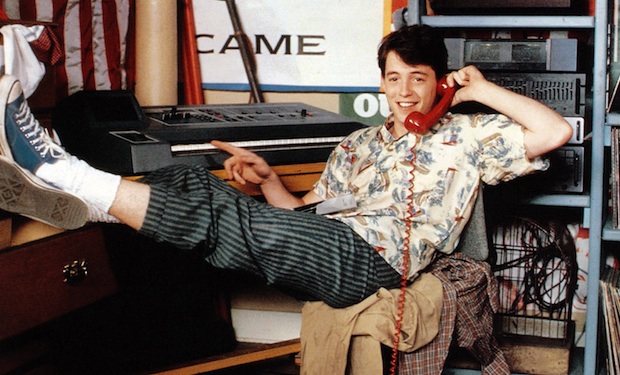
Finally we get a break from the dreariness of murder and teen angst, as good time director John Hughes serves up his slice of teen age escapism, whereas previous directors have portrayed how difficult it is growing up, Hughes offers up a sugar coated dream of escape, pure and simple.
The plot is basic: Ferris Bueller (Matthew Broderick) plans to play hooky from school, but he also has concocted a scheme that will fool everyone from his parents to the entire school body of his high school.
With his girlfriend Sloane (Mia Sara) and pal Cameron (Alan Ruck) in tow, Bueller plans to hit the town of Chicago and paint it red, all the while seemingly outwitting the only two people that are wise to his grand plan; his younger sister Jeanie (Jennifer Grey) and authority figure Principal Rooney (Jeffrey Jones).
The results are madcap hijinks on a grand scale as Bueller and his posse manages to outwit and elude any and all traps, leaving filmgoers with a belly full of laughs and smiles all around. The entire film takes place in one day: June 5, 1985. Director Hughes has stated that the film is “his love letter to the city of Chicago.”
11. Heathers (Michael Lehman, 1988)
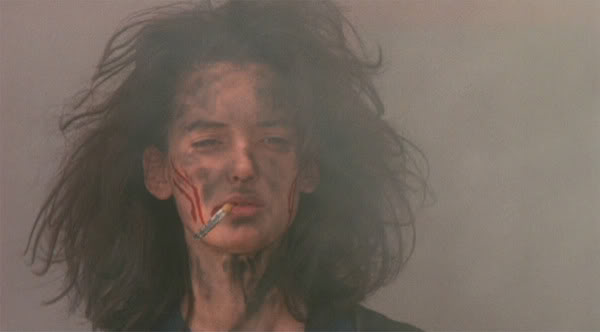
The blackest of black comedies, Heathers set a new precedent for in-jokes, teenage suicides and other untouchable subject matters with a cynicism that now feels way too familiar. Heathers takes the standard teen coming of age premise and not only short circuits it, but shoots it right between the eyes.
At Westerburgh High School, there are three Heathers, they are the most popular girls in school, but also the most hated and feared. Veronica Sawyer (Winona Ryder) is Veronica, a relatively normal girl that is part of the Heather’s clique, but wants to break away from the others.
Suddenly a new guy appears in school and Veronica is drawn to the dark psychopathic stranger (Christian Slater) and before you know it, bad things start to happen to those that seem too popular for their own good.
Heathers seriously re-wrote the book on teen comedies and gave John Hughes film a run for their money; described as “cynical, apocalyptic nihilism” this film hits the viewer with a steady stream of intelligent humor, snappy dialogue and quotable quotes. The perfect film to mark the end of the 80’s. Highly recommended.
12. Dazed and Confused (Richard Linklater, 1993)
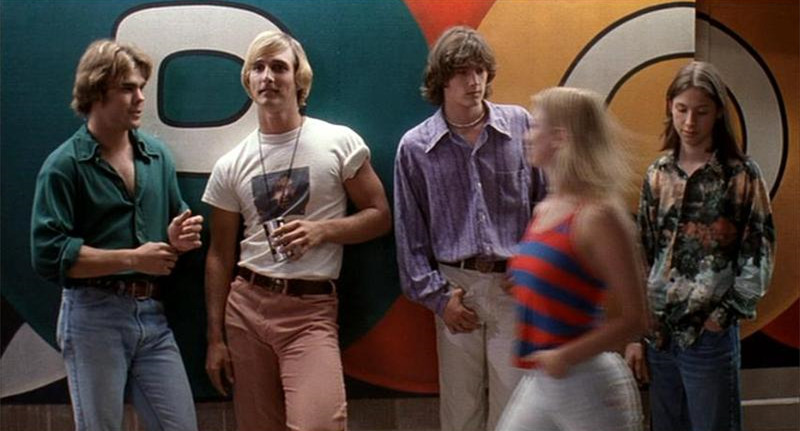
Preserving a single day on film, this film presents a historical piece of American culture captured perfectly. It is May 28, 1976(that bicentennial year); it is the last full day of school before summer vacation at a small Texas town, and Richard Linklater is there to show us all what it was like.
Featuring a large ensemble cast of people that would later become huge stars (McConaughey, Affleck, Posey, Goldberg), Linklater defines what it means to be a teenager on the cusp of freedom; both terrifying and liberating, some of us will be heading on to bigger and better things, while others will be staying put and not changing much.
The premise is again simple, but Linklater admirably handles it well, somehow keeping all the balls in the air, as he follows his large cast of participants through the end of the day and into the celebration that night. Many emotional subjects are examined such as an incoming freshman’s first kiss, smoking marijuana and standing up for one’s right even under the threat of violence or authority.
Kids being kids, there is plenty of rebellion and struggling to understand one’s place in the world as all the characters test their limitations against peer pressure and parental/authoritarian rules. All this is of course dished up with a soundtrack that is a perfect selection of 70’s super hits; Aerosmith, Foghat, Kiss and Deep Purple supply all the unforgettable tunes that memories are made to. Turn it up, man!
13. Heavenly Creatures (Peter Jackson, 1994)
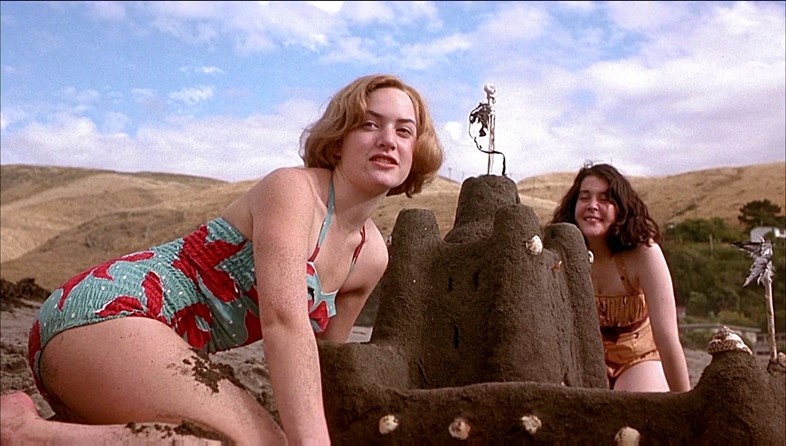
Ah, the secret inner life of pre-teen girls; how savage and bothersome, filled with dramatic high’s and low’s, pre-pubescent hormones coursing through them, changing their minds from minute to minute, murderous rage one second and begging for forgiveness the next!
This is what plays out in Peter Jackson’s fascinating film Heavenly Creatures, based on the true life crimes of Pauline Parker (Melanie Lynskey), and Juliet Hulme (Kate Winslet) a 15 year friend. Together the girls form a friendship that appears slightly stronger than their parents would like: the girls create a make believe world, called Borovnia; in this fantasy world the arts are first and foremost, certain artists and musicians become literal deities, and the girls happily live without any parental influence.
But as we all know, that badgering nag called reality intrudes to upset this scenario, and the girls are forced to come up with a final solution to the problem: murder Pauline’s mother. When the dreaded “L” word is mentioned Pauline’s parents reveal a plan to separate the two girls for good, but both girls become hysterical. The girls jointly decide that Honora (Sarah Peirse) Pauline’s mother, is the targeted victim and she must be done away with quickly so that the two can remain together.
A plan is formed and carried out, with both girls bludgeoning Pauline’s mother to death with a brick in a stocking. The next day the two are captured and jailed where they serve five years in prison before being paroled on the condition that they never see each other again. But wait, the worm turns again, as it is later revealed that Juliet Hulme is in actuality British crime novelist, Anne Perry.